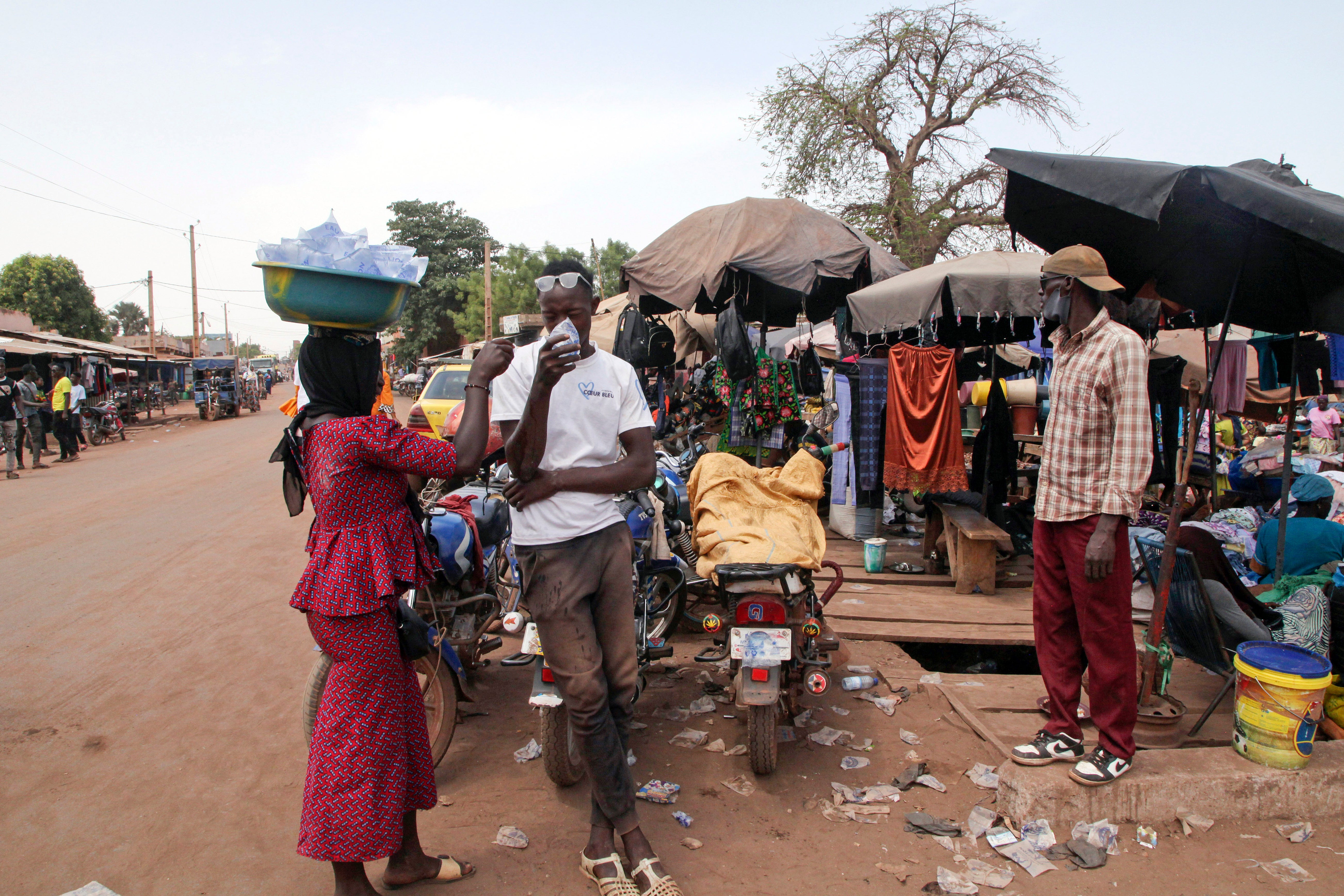Children in West and Central Africa are increasingly exposed to extreme heat, UNICEF says
UNICEF says children in West and Central Africa are increasingly exposed to extreme heat, creating health concerns

Your support helps us to tell the story
From reproductive rights to climate change to Big Tech, The Independent is on the ground when the story is developing. Whether it's investigating the financials of Elon Musk's pro-Trump PAC or producing our latest documentary, 'The A Word', which shines a light on the American women fighting for reproductive rights, we know how important it is to parse out the facts from the messaging.
At such a critical moment in US history, we need reporters on the ground. Your donation allows us to keep sending journalists to speak to both sides of the story.
The Independent is trusted by Americans across the entire political spectrum. And unlike many other quality news outlets, we choose not to lock Americans out of our reporting and analysis with paywalls. We believe quality journalism should be available to everyone, paid for by those who can afford it.
Your support makes all the difference.Children in West and Central Africa are increasingly exposed to extreme heat, creating health concerns, according to a new report by UNICEF published Wednesday.
The frequency of heatwaves in the region has more than quadrupled since the 1960s, according to the report. West Africa experienced an unprecedented heat wave earlier this year that led to a surge in deaths.
One hospital in Mali reported 102 deaths in the first four days of April, compared to 130 deaths in the entire month of April last year. It’s unknown how many of the fatalities were due to the extreme weather as such data cannot be made public under the regulations imposed by the country’s military rulers.
The extreme heat is creating health concerns for children and pregnant women as it is linked to higher chances of stillbirths, low birth weight and preterm births, according to the report.
“Exposure to high levels of heat also leaves children more vulnerable to developing chronic diseases and contracting infectious ones that spread in high temperatures, such as malaria and dengue,” David Knaute, a regional climate specialist for the U.N.’s children agency, told The Associated Press.
Central Africa is currently battling an outbreak of mpox, previously known as monkeypox, an infectious disease that disproportionally affects children. Officials at the Africa Centers for Disease Control and Prevention said nearly 70% of mpox cases in Congo are in children younger than 15, who also accounted for 85% of deaths. On Wednesday, the World Health Organization declared the outbreak a global emergency.
The UNICEF report called on governments to reduce carbon emissions to get rising temperatures under control and protect children.
“They are growing up in countries that have contributed almost nothing to climate change but are facing some of the toughest consequences,” Knaute said.